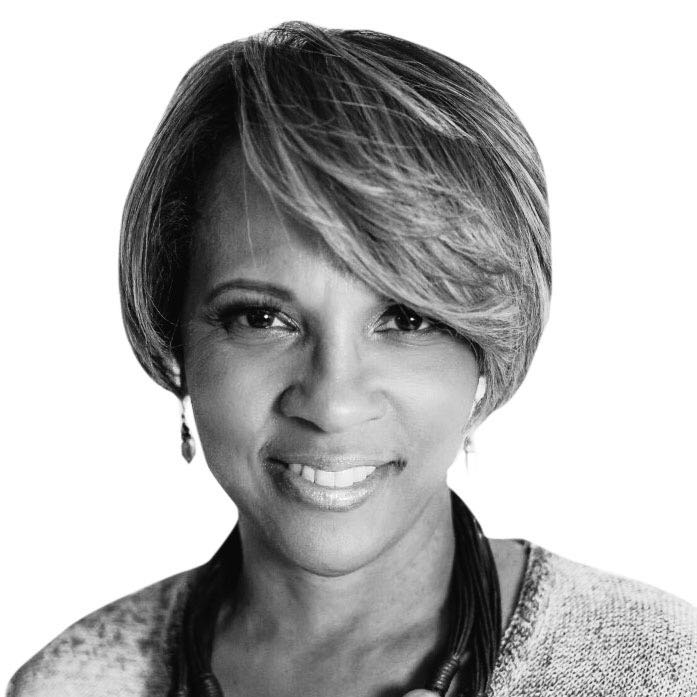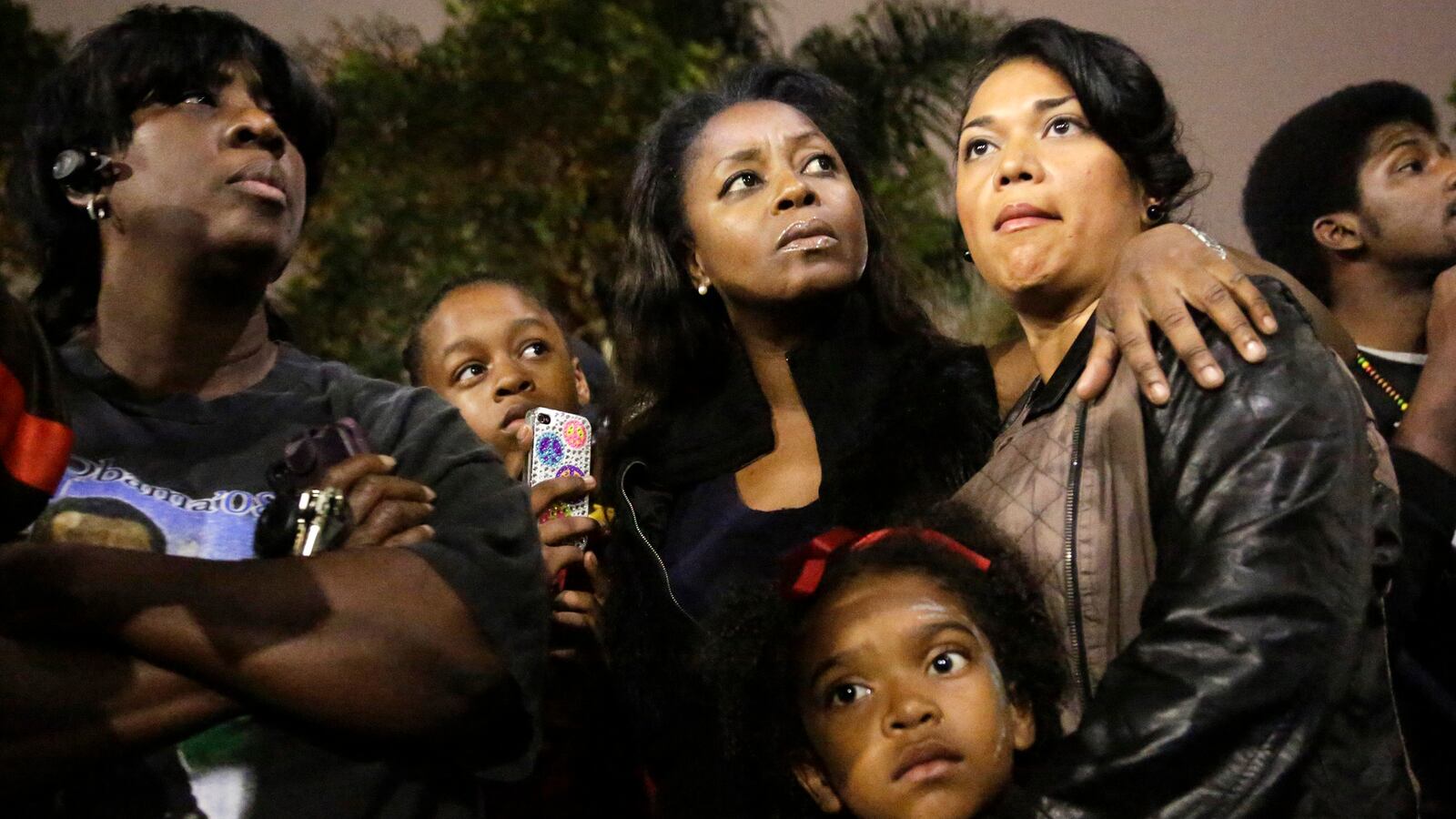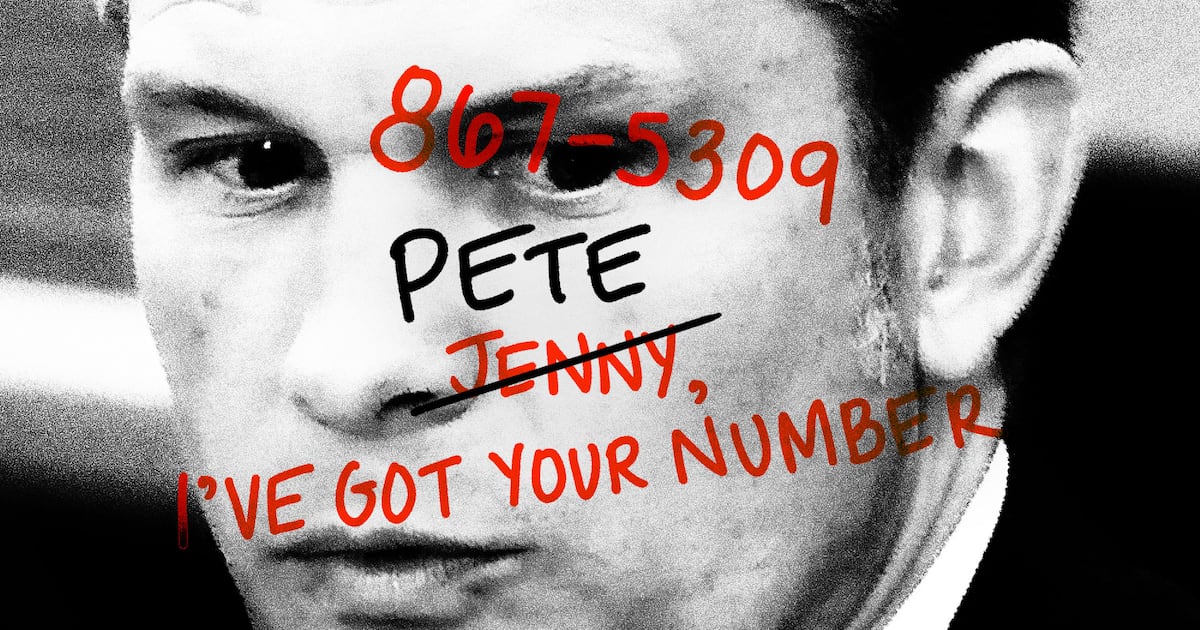For many black Americans, the verdict in the Trayvon Martin case is beyond shocking, it is earth shattering. It is beyond disappointing, it is devastating. It is beyond unfair, it is unconscionable.

To many white Americans, justice was served last night. Based on media interviews, social-media posts, and dialogue around coffee tables and in restaurants last night as posted on Facebook and Twitter, many white Americans believe that George Zimmerman was protecting his community the night he singled out Trayvon Martin as “suspicious,” and ultimately defending his life from an alleged violent and vicious physical attack against his person by the 17-year-old unarmed Trayvon Martin.
The stark contrast, yet again of how black and white people simply do not view the prism of race and racism the same, is troubling. It troubles me how we can intermarry black and white, we can work in the same workplaces, we can date across racial lines, our kids can play together, sleep over, and we socialize together, and even worship together. So how can we be so far apart, time and time again when it comes to how we see race or don’t see race as a factor in our everyday decisions, in our culture, and even in our criminal justice system?
Justice as you will recall in America, is supposed to be “blind.” But the sad truth is that she is not.

Last night’s nearly all-white, all-female jury's verdict to acquit George Zimmerman of not just a “murder 2 charge,” but of a lesser “manslaughter” charge, is simply devastating. It is devastating to Trayvon Martin’s family. It is devastating to the black community. And it is devastating to a nation that proclaims to be a place where a 17-year-old, unarmed black boy walking home from the grocery store does not have to fear being shot dead by an armed neighborhood “watchman” who has racially profiled him, and deems him an “asshole” who must not be allowed to get away. We as a nation really need to stop with all of the emotion and all of the race baiting and we need to actually look at the facts of what happened in this case.
For me as an attorney, I am deeply concerned about how this case was prosecuted from the very beginning. The fact is that George Zimmerman shot and killed an unarmed 17-year-old black boy, who was doing nothing but walking home with some candy and tea. The fact that George Zimmerman pursued this young teen, scuffled with him, and ultimately shot him, proclaiming self-defense, and was not even arrested the night of the murder by authorities should jolt all Americans as to the true racial subtext of this case. The fact that George Zimmerman’s brother Robert took to CNN’s Piers Morgan last night and called Trayvon Martin “angry,” “violent,” wanting to possess a “gun” and a user of “drugs” and as such ultimately responsible for his own death actually reduced many of us to tears. The case was riddled with race from the very beginning. To deny that is dishonest and simply not the truth.
This case reminds me of the nation’s racially split reaction when Harvard Professor Henry “Skip” Gates was arrested in his own home by a white Cambridge police officer for being a suspected intruder in July 2009. The first black president, Barack Obama, spoke up, and he was attacked. He spoke up because he had a unique prism of understanding like no other U.S. president before him about what it feels like to be black, male, and racially profiled in America.
Yet our fellow white Americans erupted in shock and outrage that the black president would speak about the issue of race. Something President Bill Clinton and many other white presidents before him were allowed to do without question. And I think that President Obama to this very day has to tread lightly on the issue of race, economic justice for blacks, and a whole host of “black” issues around race as a direct result of how he handled the Gates controversy. He has been effectively muted. As have been many black leaders in corporate America, in universities, in industry, in media and in jurisprudence in our nation. We all know the drill. We all know that to be black and speak up about racism or injustice in your environment is to put your very existence on the line financially, socially, and otherwise. That is a problem we as a culture must address and soon change if we are to solve our race problems.
The simplest way I can say this is to just say it: You can’t understand what you have not lived. You can be empathetic, you can listen, but you can never walk in another man’s shoes unless you have been or are that man.
To be black in America is loaded. It is “loaded” with history, with race, with deprivation, with rejection, with dehumanization, with disrespect, with stereotypes, with poverty, with abuse, with lack, with aggression, and with sordid imagery. For anyone to suggest that we as a society have moved past our perceptions about people of color and even women is just wrong. Have we made progress? Sure we have. We have made enormous progress; but many people had to agitate, engage, and even die for the most basic of human rights at the most basic levels of our society to be granted. Perhaps, it is time we have to do this again. We have rested on the laurels of struggles past, versus stepping up to deal with struggles present.
Racial bias is real. Racial profiling is real. Racial inequity is real. Racial injustice is real. Don’t take my word for it read the science on racial “profiling.” Read the science around the study of “unconscious bias” at Harvard University. Study history and how black men have been treated by the courts. Study history and see how juries have treated black victims, and black defendants. Study modern day sentencing guidelines and how black men (and women) are disproportionately and more harshly convicted for the same or lesser crimes as their white counterparts. The proof is all right there. If you dare to look for it, and admit that there is a race problem still in America.
For my fellow Americans who are Caucasian, I do not fault you for not knowing what it is like to be a black man or woman in America. How can you? What I fault is a system of institutional and generational white privilege and white-run jurisprudence in America that contends that a black boy’s life is so “valueless” that his admitted assailant is not even arrested the night he lay on the grass dead. I fault an attitude that supports the use of racial profiling against black males and others who are perceived as “different” or as would be thieves, murderers, or thugs. I fault a judicial system in Florida that sentences a black woman, Marissa Alexander, to 20 years for shooting her gun “off” at an abusive boyfriend who beat her, and yet allows a Hispanic male, George Zimmerman, to walk free for the murder of an unarmed black teenager. I fault unwillingness on our part as Americans to actually talk about race. Not point fingers. Not lay blame but to actually talk to people who don’t look like us, and to actually believe them when they tell you how hard it can be to be black in this nation still, despite having a black U.S. president, and having made many strides since the civil-rights era of the 1960s.
In the final analysis, we are all human. We are all Americas. E Pluribus Unum: Out of many we are one. The time has long since come for us to talk about race and racism for real in America. We are a great people. We have fought great battles since our founding as a nation. We have defeated kings, tyrants, foes, great depressions, and divisions. Yet, on this issue of race, we continue to hide, to deny, and to destroy one another. Let us find the courage to talk to one another. To listen to one another; and to build a better future for our children, one with another.





